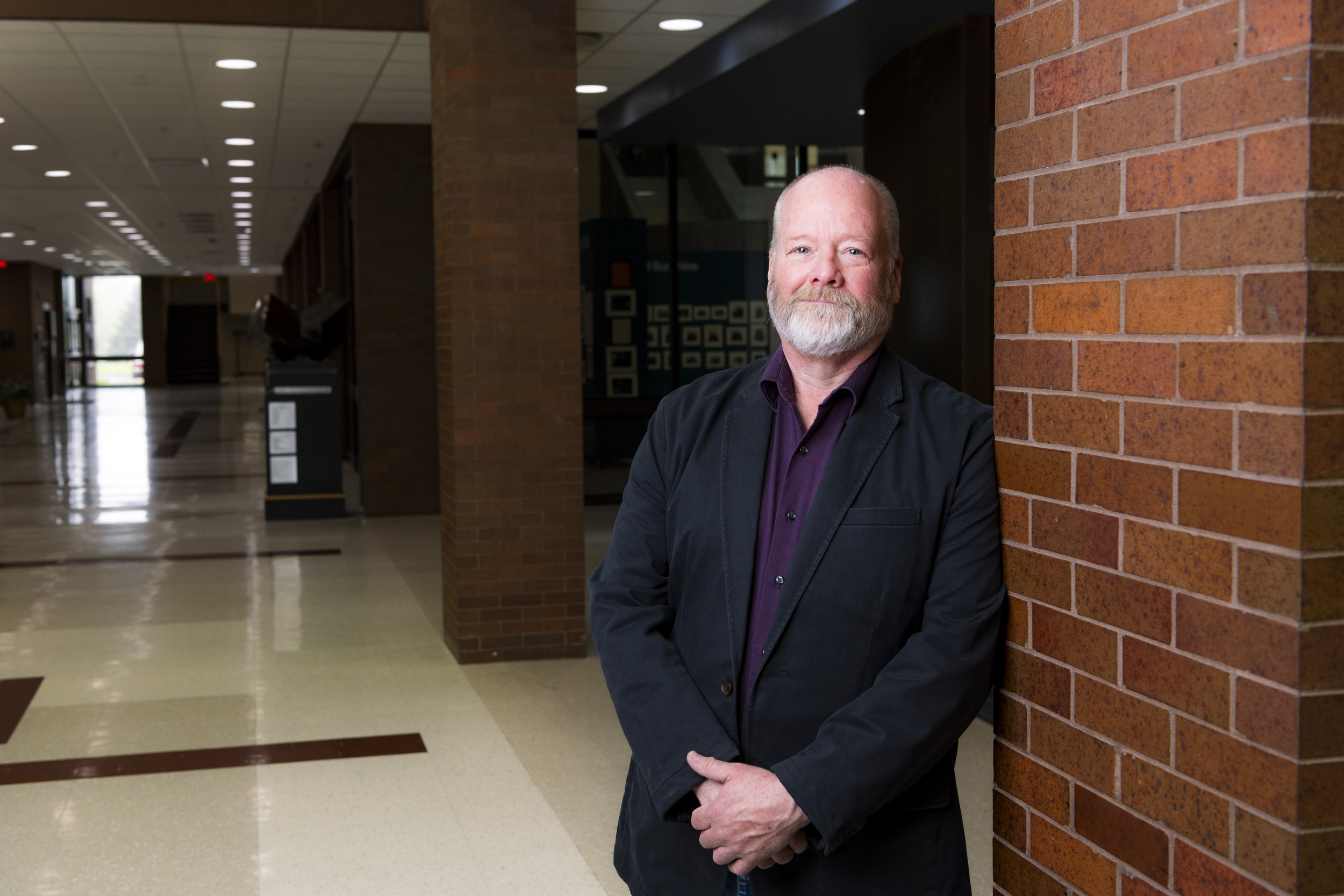
Matthew Sluka
Interpreter Richard “Smitty” Smith will retire on June 30 after 46 years at RIT’s National Technical Institute for the Deaf.
Richard Smith remembers pivotal moments that led to his career path as an ASL-English interpreter. When he was 16 years old, he had the opportunity to see a sign-language interpreter at work. After that, he signed up for free sign-language classes offered at RIT.
“It was these moments, along with others, that made me realize this was the work I wanted to do and that NTID was where I wanted to be,” said Smith.
Forty-six years later, “Smitty,” as he affectionately known on campus, will retire June 30 from his role as curriculum support/materials development coordinator in NTID’s Department of American Sign Language-English Interpretation.
Throughout his career, Smith, who started at NTID in 1979, has earned several awards, including the Alice Beardsley Professional Interpreter of the Year Award, the Department of Interpreting Services Interpreter Emeritus Award, the Genesee Valley Region Registry of Interpreters Service Award, and the Rochester Deaf Kitchen Most Valuable Interpreter Award. He has also twice received the NTID Advisory Group Award.
“NTID has given me far more than I have contributed—a life, a career, and a purpose,” he said. “I was fortunate to be in the right place at the right time and couldn’t be more grateful.”
How has the field of ASL interpreting changed throughout the years?
The field has changed quite a bit. There is more research and new and different ways of looking at things and more Deaf colleagues interpreting and taking on leadership roles. There is also more open dialogue, which is truly wonderful. When I first started, there were no degree programs offered for interpreters—just training programs. Now, interpreters can earn a doctoral degree or specialty certificates, such as interpreting in healthcare.
What will you miss most after you retire?
Hands down, I will miss seeing all of the students—Deaf, hard-of-hearing, and hearing—grow and become leaders. I will also miss talking about ASL and the work that we do as interpreters.
What are a few of your most memorable interpreting assignments?
I had the opportunity to work in China and see the Great Wall. I was also able to interpret in the beautiful city of St. Petersburg in Russia. It was also a pleasure to work as an interpreter on the social work team within Interpreting Services for eight years. Those were the best years.
What are your plans during retirement?
I have plans to go to the gym, volunteer at the Rochester Deaf Kitchen food pantry, and continue with my hobby of making raised garden beds, rolling plant stands, and holiday ornaments from scrap wood and recycled materials. Oh, and I plan to take naps.









